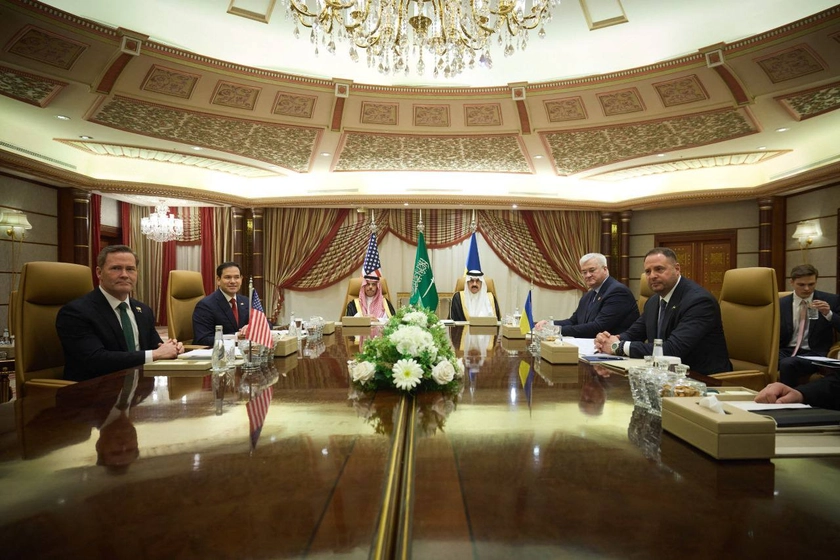In the first article in this series, I examined how Russia used social media in its attempts to meddle with the 2024 US presidential election. Moscow used fake videos attributed to the Federal Bureau of Investigation (FBI) and the Department of Justice (DOJ) on platforms such as X and TikTok which no doubt influenced how many Americans perceived the political climate ahead of the Nov. 5 election.
It is essential that Congress and US government agencies implement policies and strategies to undermine Russian election meddling in the future.
JOIN US ON TELEGRAM
Follow our coverage of the war on the @Kyivpost_official.
Congress should, for example, create and enforce legislation that improves “coordination between the federal, state, and local governments on cyber threats to voting infrastructure.” Resources could be used that strengthen technology in use at voting booths so that they cannot be hacked.
Congress should also pass legislation that would undermine attempts to spread disinformation and misinformation on social media platforms. For example, Congress should pass legislation that would “improve disclosure requirements for online political ads and social media accounts,” in the same way that advertisers on television are required to disclose their organization and sponsors. This would state who funds political messages and election content on social media platforms. In addition, Congress should hold social media companies responsible for not deactivating accounts and profiles used to promote disinformation.
US Strategy on Ukraine: Confusion, Chaos, and a Deal With Russia?
Outside of Congress, US government agencies should also increase their operations when interacting with social media platforms so that they can shut down accounts that are spreading disinformation and misinformation.
For example, the FBI and DOJ, in conjunction with the Cybersecurity and Infrastructure Security Agency (CISA), the Cyber National Mission Force (CNMF), and other similar agencies, should continue to investigate social media accounts used by Russian actors.
Just recently, the FBI and other partner organizations disrupted a “covert Russian government-operated social media bot farm.” Identifying fake accounts on these platforms and deactivating these accounts will limit the spreading of disinformation and misinformation on social media. These measures will impact on Russian efforts to influence the US public, and it will make accessing social media safer for all.
Aside from efforts that should be taken by Congress and the government, US citizens can also take measures to help strengthen the country’s election integrity. Media outlets reported that many US voters relied significantly on social media for information leading up to the 2024 election.
How can Americans distinguish fact from disinformation on social media?
First and foremost, US citizens should check information posted by social media users. Unlike journal articles, news websites, newspapers, or think tanks, which require contributors to source information regularly, social media platforms do not have a citation system.
This means that users can post content on social media without being fact-checked. In addition, many social media organizations such as X, Instagram, and Facebook now offer a pay-to-verify model, where accounts become verified by merely paying a monthly subscription. Basing verification on a payment structure rather than through the credibility of the user makes it harder to authenticate information posted on these sites.
While it takes time to confirm information posted on these platforms, Americans could examine information posted on social media through fact-checking websites such as PolitiFact, StopFake, and FactCheck.org.
If an individual identifies instances of disinformation or misinformation on social media, then the user should report the post. Various platforms, such as X, Instagram, and Facebook, offer a forum where individuals can submit posts for review and removal. Failing that users can write a post in response to the fake content, where they can inform others about the questionable information and point out why it is incorrect. This helps identify false or misleading information, help educate other users on the platform and could result in the removal and deletion of the account spreading fake information.
It is time the US government and its citizens should take election meddling seriously. Russia successfully promoted and shared content that misled the US public before and during the 2024 presidential election. This undermined the electoral process, and Russia cannot be allowed to proceed in the same way in future elections.
The Russian Federation creates social media accounts that it uses to try and divide the US public using disinformation to undermine the US electoral process and that threatens US democracy.
Given the severity of these issues, Congress and US. government agencies should do everything they can to strengthen the country’s democratic institutions and protect the electoral process.
In addition, they and US citizens should do their part to combat disinformation and misinformation at source - the social media platforms in which it appears. Identifying and deactivating these accounts will be the first step in the complicated but necessary process of preventing Russia’s efforts to interfere in the US electoral process.
The time to act is now.
If Congress, government agencies, and the public do nothing to stop Russia’s efforts at interference Russia can continue to conduct disinformation campaigns to sway the US public and the US electoral process again in the future, leading to us questioning the legitimacy and authenticity of the voting system.
Democratic processes in the United States are at stake. It is time to address the actors that are attempting to undermine them.
Mark Temnycky is an accredited freelance journalist covering Eurasian affairs and a nonresident fellow at the Atlantic Council’s Eurasia Center.
The views expressed are the author’s and not necessarily of Kyiv Post.
You can also highlight the text and press Ctrl + Enter











